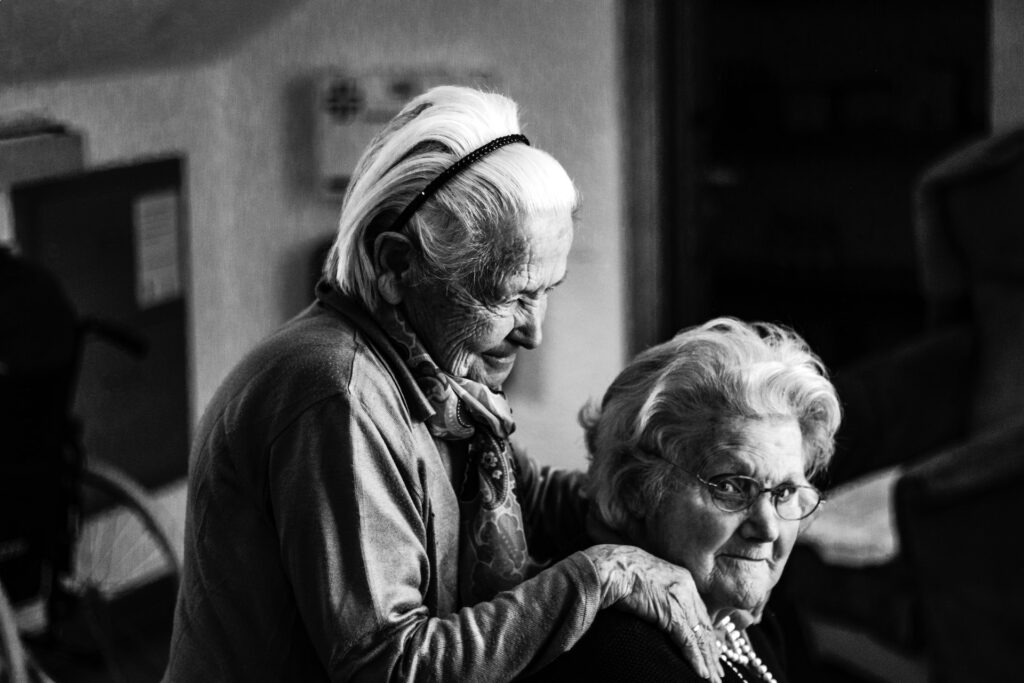The Whys And Hows Of Getting Legal Aid For Nursing Home Abuse

It’s hard to think of anything more heartbreaking than nursing home abuse. For elderly people who have spent their lives taking care of others, the indignity and humiliation of being abused by those entrusted with their care can be too much to bear. The victims are often scared, ashamed, and reluctant to come forward. They may not even realize that they are being abused. But help is available. If you or a loved one has been the victim of nursing home abuse, you may be able to get legal aid to help you file a lawsuit against the abuser. We will explain how to get legal aid for nursing home abuse and what your options are if you choose to pursue a case.
To Start, Get Legal Representation
The first step in getting legal aid for nursing home abuse is to find a lawyer who specializes in this area of law. Many lawyers handle personal injury cases, but not all of them have experience with nursing home abuse cases. It’s important to find a lawyer who has successfully handled these types of cases before because they will know how to navigate the complex legal landscape and build a strong case on your behalf.
Consulting with the team at Claims Compass can be a great way to get started. There are a few ways to find a qualified nursing home abuse lawyer. You can ask friends or family members if they know anyone who has used this type of lawyer before. You can also search online for “nursing home abuse lawyer” or “elder abuse lawyer” and narrow down your options based on location, reviews, and case results. Once you have a few lawyers in mind, you can set up consultations to see if they would be a good fit for your case.
- When you meet with a nursing home abuse lawyer, be sure to bring any relevant documentation with you, such as medical records, police reports, or evidence of financial abuse. The more information you can provide, the better. Be prepared to answer questions about what happened and how it has affected you. The lawyer will use this information to determine whether or not you have a case and whether they can take on your case.
What If I Can’t Afford A Lawyer?
If you cannot afford to pay a lawyer, there are still options available to you. Many lawyers work on a contingency basis, which means they only get paid if they win your case. In these cases, the lawyer will typically take a percentage of the settlement or jury award as their fee. If you cannot find a lawyer who is willing to work on a contingency basis, you may be able to find one who is willing to work for reduced fees or pro bono (for free). Many legal aid organizations provide free or low-cost legal services to those who cannot afford a lawyer. The Citizen’s Advice Bureau also offers free legal advice to UK citizens (although the lawyer you see there will deal with a wide range of legal matters.)
How Nursing Home Abuse Is Dealt With Legally
Nursing home abuse is a type of elder abuse, which is any type of abuse or exploitation of a person 65 years of age or older. Elder abuse can take many forms, including physical, emotional, sexual, financial, or neglect. In the UK, there is no specific law against elder abuse. However, there are a number of laws that can be used to prosecute abusers, such as the Fraud Act 2006, the Protection from Harassment Act 1997, and the Criminal Justice and Courts Act 2015.
- In England and Wales, the Crown Prosecution Service (CPS) is responsible for prosecuting cases of elder abuse. The CPS will only prosecute cases that they believe have a realistic chance of conviction and where it is in the public interest to do so. In order to make a decision on whether or not to prosecute, the CPS will consider a number of factors, including the severity of the abuse, the age and vulnerability of the victim, and whether or not there are any other victims.
What Are My Legal Options If I’ve Been Abused?
If you or a loved one has been the victim of nursing home abuse, as well as reporting the matter to police, who will hand any prosecution, you may also be able to bring private legal action against the abuser. The first step is to contact a lawyer to discuss your case and see if you have grounds for a lawsuit. If you decide to pursue a case, there are a few different types of claims that you can file, depending on the facts of your case
- Negligence: To succeed on a negligence claim, you must prove that the nursing home breached its duty of care to you or your relative and that this breach resulted in your injuries. For example, if a nursing home fails to provide adequate supervision and you or a loved one are abused as a result, you may be able to sue for negligence.
- Intentional Infliction of Emotional Distress: To succeed in a claim for intentional infliction of emotional distress, you must prove that the nursing home’s actions were so outrageous and extreme that they caused you to suffer severe emotional distress.
- Wrongful Death: If your loved one died as a result of nursing home abuse, you may be able to file a wrongful death claim against the abuser
What Damages Can I Recover in a Nursing Home Abuse Lawsuit?
If you are successful in your nursing home abuse lawsuit, you may be able to recover compensatory damages, which are designed to reimburse you for your losses. These damages can include medical expenses, lost wages, pain and suffering, and emotional distress.
- There is a statute of limitations, or time limit, for filing a nursing home abuse lawsuit in most parts of the world. In some USA states, the time limit is as short as one year from the date of the abuse. In the UK, however, the claim limit is three years. However, it is important to consult with a lawyer as soon as possible after the abuse occurs to ensure that your claim is filed within the applicable time limit, because your legal representatives will need to gather evidence, such as medical reports, witness statements and so on, which may take time.

Nursing home abuse is a serious issue and if you or a loved one has been the victim, you may have legal options available to you. Contacting a lawyer as soon as possible is the best way to ensure that your rights are protected. Make sure to choose a lawyer who has experience handling nursing home abuse cases and who will fight for the best possible outcome in your case.





